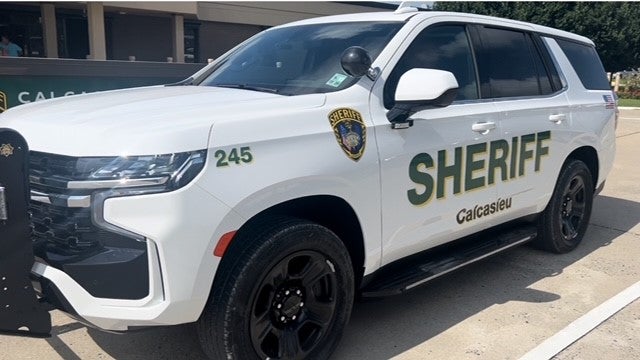Early election takeaways: Next president will lead fractured nation
Published 9:56 pm Tuesday, November 5, 2024

- (Metro Creative Services)
Even with the outcome uncertain Tuesday night, the 2024 presidential election already has exposed the depths of a fractured nation as the candidates navigated a political realignment based on gender, class and age under the near-constant threat of misinformation and violence.
Not since the 1968 election, when the nation was torn over racial strife and the Vietnam war, has the divide seemed so apparent.
But the biggest conclusions so far may be the most obvious.
The United States is poised to elect either its first female president in Vice President Kamala Harris or its first president with a felony conviction in former president Donald Trump.
With votes still being counted across the country, here are some early takeaways:
There is a new battleground map and scrambled coalitions
White college educated voters, even in metropolitan areas, once leaned Republican. Working-class white voters, especially in union households, were key parts of Democrats’ coalition. Black voters — men and women — were the bedrock of the party, and they also had a strong pull for Latino voters. So did young voters.
Preliminary data from AP VoteCast, an expansive survey of more than 115,000 voters nationwide, suggested that some groups may have shifted.
One potential trend could be among younger voters, whose political lives have been shaped by the presence of Trump. Voters under age 30 represent a fraction of the total electorate, but about half of them supported Harris. That’s compared to the roughly 6 in 10 who backed Biden in 2020.
Slightly more than 4 in 10 young voters went for Trump, up from about one-third in 2020.
The broad shifts have helped reorder the presidential battleground map. Florida and Ohio, traditional battlegrounds, are now firmly Republican. Yet other states in the Great Lakes region — Pennsylvania, Michigan and Wisconsin — remained tossups as votes were being counted. And the Southern Sun Belt state of North Carolina — once reliably in the GOP presidential column — remained close as well.
Trump boasted throughout the fall that he would get more support from Black men and Latino men than Harris usually does.
Harris, meanwhile, went after more educated voters — including moderate Republicans — repelled by Trump.
It may turn out that the Trump era is not a permanent realignment of the major party coalitions. But it’s clear that old coalitions and longstanding understandings of how to win the White House simply do not apply with Trump in the mix.
A new president will take charge of a nation with deep fissures
Whether Harris or Trump ends up behind the Resolute Desk, the 47th president will lead a nation with deepening political and cultural fissures and a worried electorate.
AP VoteCast found that about 4 in 10 voters considered the economy and jobs the most important problem facing the country. Roughly 2 in 10 voters said the top issue is immigration, an anchor of Trump’s argument, and about 1 in 10 picked abortion, a pillar of Harris’ campaign.
In a reminder of just how unusual this election has been, about 1 in 4 Trump voters said the assassination attempts against him were the most important factor in their vote.
But when asked what most influenced their vote, about half of voters cited the future of democracy. That was higher than the share who answered the same way about inflation, immigration or abortion policy. And it crosses over the two major parties: About two-thirds of Harris voters and about a third of Trump voters said the future of democracy was the most important factor in their votes.
That’s not surprising given the realities of the Trump era and the rhetoric of the campaign.
Trump refused to acknowledge his 2020 defeat and watched his supporters ransack the U.S. Capitol on Jan. 6, 2021, as Congress convened to certify Democrat Joe Biden’s victory. Trump even mused two days before Election Day that he “shouldn’t have left” the White House after repeatedly promising retribution to his political enemies.
Harris, by the end of the campaign, joined other critics — including some of Trump’s former White House chief of staff — in describing the former president as a “fascist.” Trump, meanwhile, labeled Harris a “fascist” and a “communist.”
He then told voters that the multiple criminal prosecutions against him prove that Democrats are the true “threat to democracy” and in the final days of the campaign stepped up his debunked claims that U.S. elections are rigged against him.





